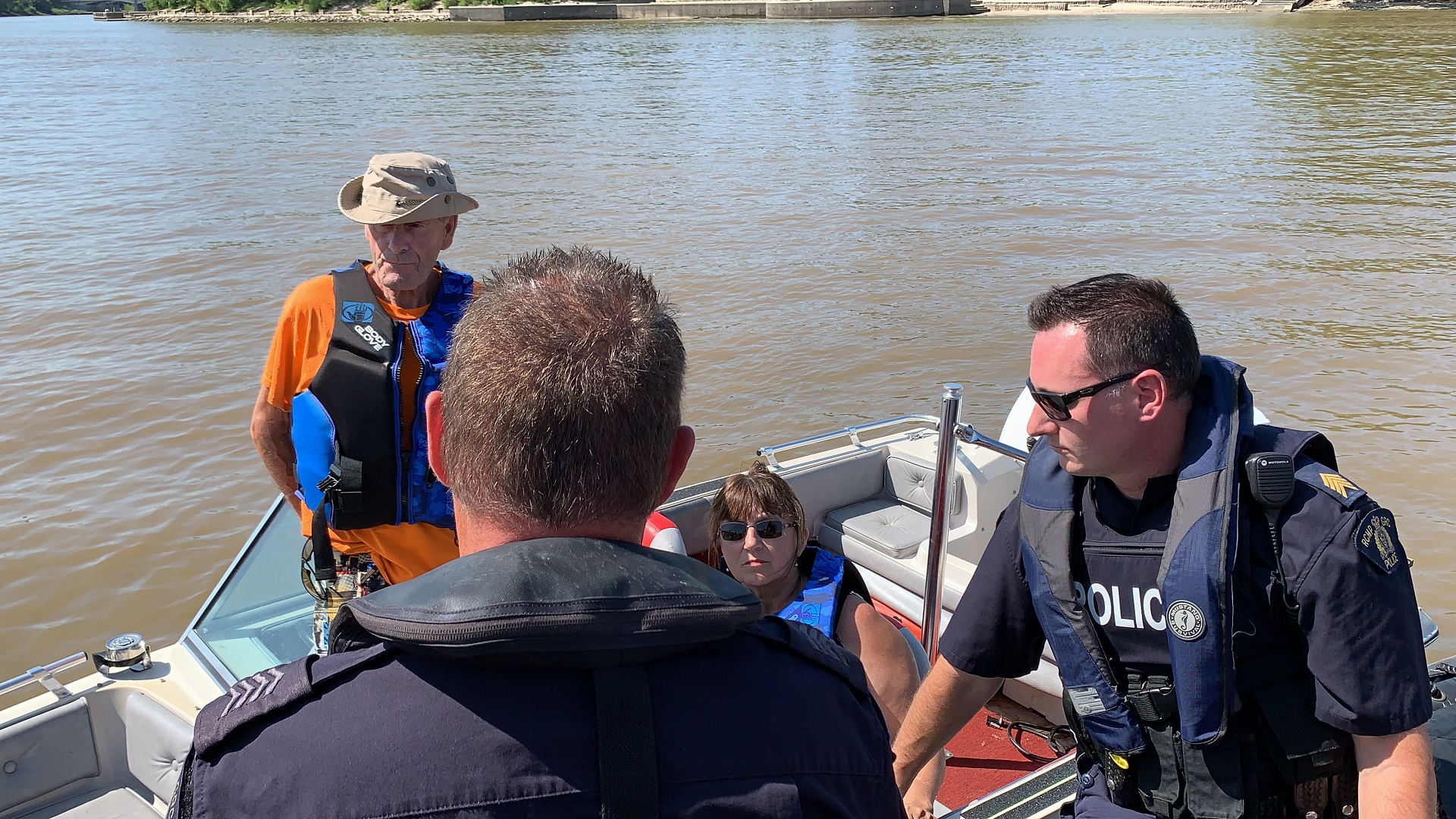In a world where it was once acceptable to drink and drive, but now has dire consequences, Manitobans are still boating under the influence - nearly double the national average.
In its seventh year, Operation: Dry Water, The Life Saving Society of Manitoba and Manitoba RCMP are urging Manitobans to boat sober this August long weekend.
Winnipeg Police Service (WPS) Public Information Officer, Constable Rob Carver says, "We do this in the middle of the summer, just before the August long weekend, to remind people how dangerous it is and that it is illegal to consume alcohol while you are boating."
For the last seven years of Operation: Dry Water, Manitoba has been hovering at this high percentage.
Dr. Chris Love, WaterSmart Coordinator for the Life Saving Society of Manitoba says, "The message does not seem to be getting out there.
"In my job, for public education, the biggest thing I want to do is to hear good news stories and hear of people being safe. It's really disheartening to report year, after year, after year on fatalities and injuries that are occurring from what is a 100 per cent preventable occurrence."
Operation: Dry Water is an awareness event, during the August long weekend, to get people thinking about the dangers of being under the influence when they are out there on the water and boating.
"Our big message is we want everyone to be out there boating sober because unfortunately, the statistics continue to be far too high here in Manitoba and across the country. Intoxicated boating is 100 per cent preventable and the number of deaths and injuries we see are, again, 100 per cent preventable," says Love.
"We're not the highest amongst all the provinces, but we're pretty close and the fact that we're above the national average is nothing to be proud of." - Love
When asked why Manitobans seem to continue with this trend, Love suggested it may be a lack of understanding of the penalties that can occur when you are found boating under the influence or with alcohol and drugs on your water vessel.
"There's been some myths out there in regards to boating and in regards to being able to consume alcohol ... we just want to make it clear that if you are operating a vessel, there is no provision for you to consume alcohol or drugs while operating that vessel," says Staff Seargent Bob Chabot of the Manitoba RCMP.
"As far as penalities go, if you are caught operating under the influence, the penalties are the exact same as on the highway. So you would lose your driver's licence for your vehicle and so the penalties and fines are the exact same whether you are operating a boat or operating a vehicle."
"Takes a lot more skill to operate a vessel in the water, in the wind, and water conditions really affect the way you operate a vessel. Combining that with alcohol or drugs is not a good idea obviously." - Chabot
The RCMP has announced that they will be conducting patrols all over the province. Chabot says they hope to find families having fun water rather than responding to a tragedy.
Doug Sinclair of the Winnipeg Fire Paramedic Services says, "Every year, members of WFPS respond to approximately 150 water rescue calls. Unfortunately, our crews see far too many tragedies which could have been prevented."
Love calls for Manitobans to be safe and smart on the water this weekend: "It may not be you, as the intoxicated one, who ends up injured at the end of the day. You may be hitting another boat, or injuring someone else, or causing a fatality for someone else and again that's a tragedy that need not happen."
Life-Saving Tips
- Boat sober - do not consume alcohol or drugs before or during your boating experience
- Stay safe - follow all waterway laws like speed limits, shore clearances, having the proper licences and safety equipment on your boat like paddles, anchors and more.
- Wear your life jacket or PFD
Manitoban Statistics
- 58 per cent of boating drownings occurred under the influence of alcohol
- 86 per cent of boating drownings were from not wearing a PFD or lifejacket
- 71 percent of drownings occurred between May and September
- 81 percent of individuals who drowned were males versus 19 per cent being female















